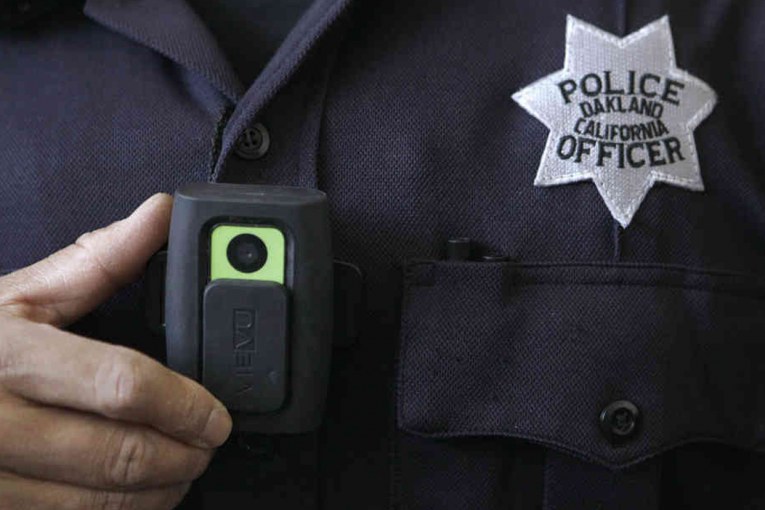

In 1991, an amateur video surfaced of police officers badly beating motorist Rodney King in Los Angeles. Much of the nation was shocked to see such a display of wanton brutality – but the reality that black America knew was that this treatment was commonplace and the only thing different was that it happened to be caught on video.
The impact of that moment shows us both the potential and also the limits of video to solve problems of police misconduct. The officers were acquitted in a criminal trial and ultimately very little changed as a result of the beating, the video, and even the riots.
It would take over 20 years for such videos to become commonplace, but while videos like that capturing the shooting of Tamir Rice and Walter Scott and the chokehold of Eric Garner were horrifying and angered segments of the community – once again, we saw the limits.
Even when shootings were captured on video, officers were often not charged, when charged not convicted, and when convicted, not convicted for long.
And while many – myself included – have steadfastly pushed for not only body-worn cameras but transparency in footage released from them, at least in critical incidents, we are also well aware of the limits of the camera’s impact, because we have watched this unfold for the last 28 years.
Those who believed that cameras would do anything other than provide for transparency and accountability were fooling themselves. Basically, psychology should have told people otherwise. Most police officers are trained differently than the sensibilities of the critics. They don’t believe they are doing anything wrong.
In short, confirmation bias and tunnel vision tell police officers along with their training that their conduct was proper.
So it should be no surprise that body-worn camera research shows that, in its early stages, it not meeting the expectations of many.
That is what a new report from the Center for Evidence-Based Crime Policy at George Mason University concluded.
“There is an incongruence between people’s expectations of cameras, police expectations of cameras and what they think they’re being used for,” says Cynthia Lum, the center’s director and a co-author of the report.
The researchers here conducted a meta-study, looking at 70 empirical studies on the effects of cameras. On the question of use of force, the study showed mixed results.
Six studies found officers wearing cameras to be less likely to use force, but in eight of the studies, there were no statistically significant effects found.
A key variable is the degree officers are required to wear and activate their cameras – which a study shows, in those cases where officers are compelled to comply, they use force less frequently than those given more discretion.
One of the points I made during the debate was that body cameras would help good officers. That seems to be borne out by the data which shows that officers wearing the cameras receive fewer complaints – it is not clear if that is because they alter their behaviors or because citizens are less likely to file unfounded complaints when they know the incidents are recorded.
I am a bit skeptical of these results, however – as, unless people are knowingly filing frivolous complaints, it would be hard to know.
Cynthia Lum stated: “Officers are liking body-worn cameras more and more because they see it as protection against frivolous complaints.”
Among other findings is that body cameras have been used more in the prosecution of civilians than the prosecution of cops. We saw in the Hayley Gilligan case the full statements by the defendant on body camera, and we didn’t have to rely on the police officer to reconstruct the conversation.
There are limits to this. The study at George Mason University did not find that body cameras reduce crime or had any “general deterrent effects.”
On a positive note, one of the biggest fears of body cameras was that officers would pull back on enforcement activities as the result of the cameras. The research finds that a majority of studies did not support the concern and some of the studies suggest “wearing cameras actually might initiate more total contacts than those without them.”
On the other hand, the research suggests that body cameras have not increased the public’s trust in police. A study found no linkage between “deployment of body cameras and citizens’ views of police legitimacy, professionalism or satisfaction with police interactions.” Further, “studies examining their effects on resisting arrest or assaults on officers were mixed, and no definitive conclusions could be made about whether body cameras influenced numbers of arrests and citations.”
The study found that body cameras are here to stay, with 47 percent of law enforcement agencies having acquired the technology as of 2016, and officers’ views of the cameras have improved over time.
I really don’t agree that we should rethink the wisdom of body cameras. In my experience, body cameras are a tool, but they are not a cure. Unless departments are going to be transparent about police incidents, it will be difficult for cameras to have a huge systemic impact.
They need to be coupled with changes in transparency laws and also use of force policies. Without those, we may not even know about many of the police incidents that occurred and, when we do, the incidents can often be swept under the rug.
That is part of what the research so far is missing. Police officers are not going to change their behavior unless they have a reason to do so.
—David M. Greenwald reporting

